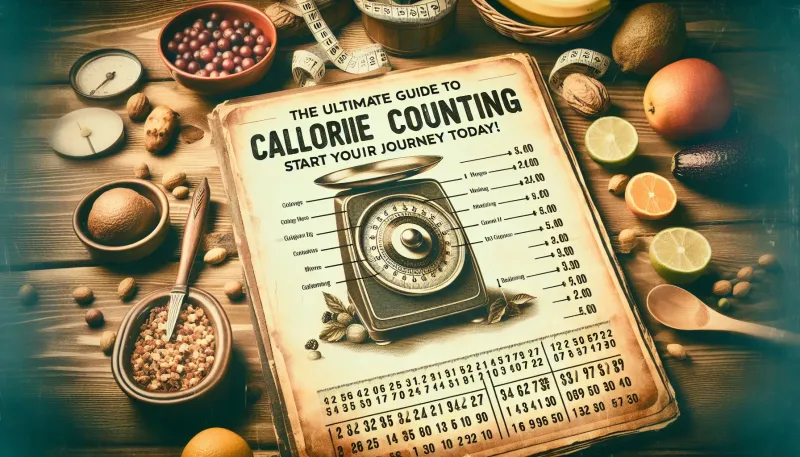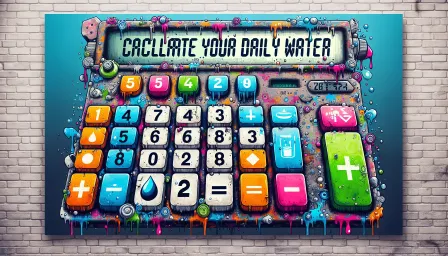The Ultimate Guide to Calorie Counting for Beginners: Start Your Journey Today!

Learn everything you need to know about calorie counting for beginners. Start your journey to a healthier you with our ultimate guide.
Calorie counting is a well-known method for managing weight and improving overall health. However, for beginners, it can be overwhelming to start. This guide aims to simplify the process and equip you with all the essential knowledge to make calorie counting a part of your daily routine. Let’s dive in!
What is Calorie Counting?
Calorie counting involves tracking the number of calories you consume through food and beverages and comparing it to the number of calories your body burns. It helps in maintaining, losing, or gaining weight by keeping a balance between the calories you consume and expend.
Why Should You Count Calories?
Understanding the importance of calorie counting can motivate you to stick with it. Here are a few reasons why counting calories benefits you:
- Weight Management: Whether you aim to lose, gain, or maintain your weight, knowing your caloric intake helps you make informed decisions.
- Healthy Eating Habits: Tracking what you eat can highlight unhealthy food choices and help you replace them with healthier options.
- Increased Awareness: Being aware of the calorie content in foods empowers you to make smarter choices that align with your health goals.
- Control Over Portion Sizes: Learning proper portion control prevents overeating, which can lead to weight gain.
How to Start Calorie Counting
Beginning your calorie counting journey involves a few steps. Here's how you can get started:
1. Determine Your Caloric Needs
First, calculate your Basal Metabolic Rate (BMR), which is the number of calories your body needs at rest. You can use online calculators that factor in your age, gender, weight, height, and activity level. Then, consider your daily activity level to find out your Total Daily Energy Expenditure (TDEE).
2. Set Your Goals
Once you know your TDEE, you can set your caloric intake goals. If your aim is to lose weight, a common recommendation is to reduce your daily intake by 500 calories, which should lead to a loss of about 1 pound per week. Conversely, if you aim to gain muscle, you might increase your intake by 300-500 calories per day.
3. Track Your Food Intake
Use a food diary or mobile app to log your meals. Many apps have extensive food databases and can simplify the tracking process by providing calorie information for a wide range of foods.
4. Monitor Your Progress
Regularly check your progress by weighing yourself or measuring body areas. Adjust your caloric intake based on your goal and progress.
Tips for Effective Calorie Counting
To ensure accurate and effective calorie counting, keep these tips in mind:
1. Weigh and Measure Your Food
Invest in a kitchen scale to get precise measurements of your food portions. This accuracy helps in maintaining precise calorie counts.
2. Be Honest and Consistent
Track everything you eat and drink. Honesty and consistency are key to getting truthful results. Even small snacks or beverages should be included.
3. Plan Your Meals
Planning meals in advance can help you stay within your caloric budget and avoid impulsive eating. It also helps in maintaining a balanced diet.
4. Read Nutrition Labels
Nutrition labels provide valuable information about the caloric and nutritional content in packaged foods. Use them to make educated food choices.
5. Stay Hydrated
Drinking water is essential for overall health and can sometimes be mistaken for hunger. Aim for at least 8 cups of water a day.
Common Challenges and How to Overcome Them
Calorie counting might present some challenges initially, but with the right approach, you can overcome them. Here are a few common challenges and their solutions:
1. Difficulty Estimating Portions
Solution: Use a kitchen scale and measuring cups to ensure accuracy. Over time, you'll develop a better sense of portion sizes.
2. Eating Out
Solution: Choose meals with clear nutritional information or opt for simple dishes like salads and grilled proteins. Don’t hesitate to ask the restaurant staff for calorie information.
3. Boredom or Burnout
Solution: Vary your diet with new recipes and different foods to keep your meals exciting. Taking a break or reducing the intensity of tracking can also help you stay motivated.
Conclusion
Calorie counting is a powerful tool for anyone looking to take control of their diet and health. By understanding your caloric needs, setting goals, tracking your intake accurately, and overcoming challenges, you can make significant strides towards achieving your health objectives. Start your calorie counting journey today and move towards a healthier and more informed lifestyle!



























